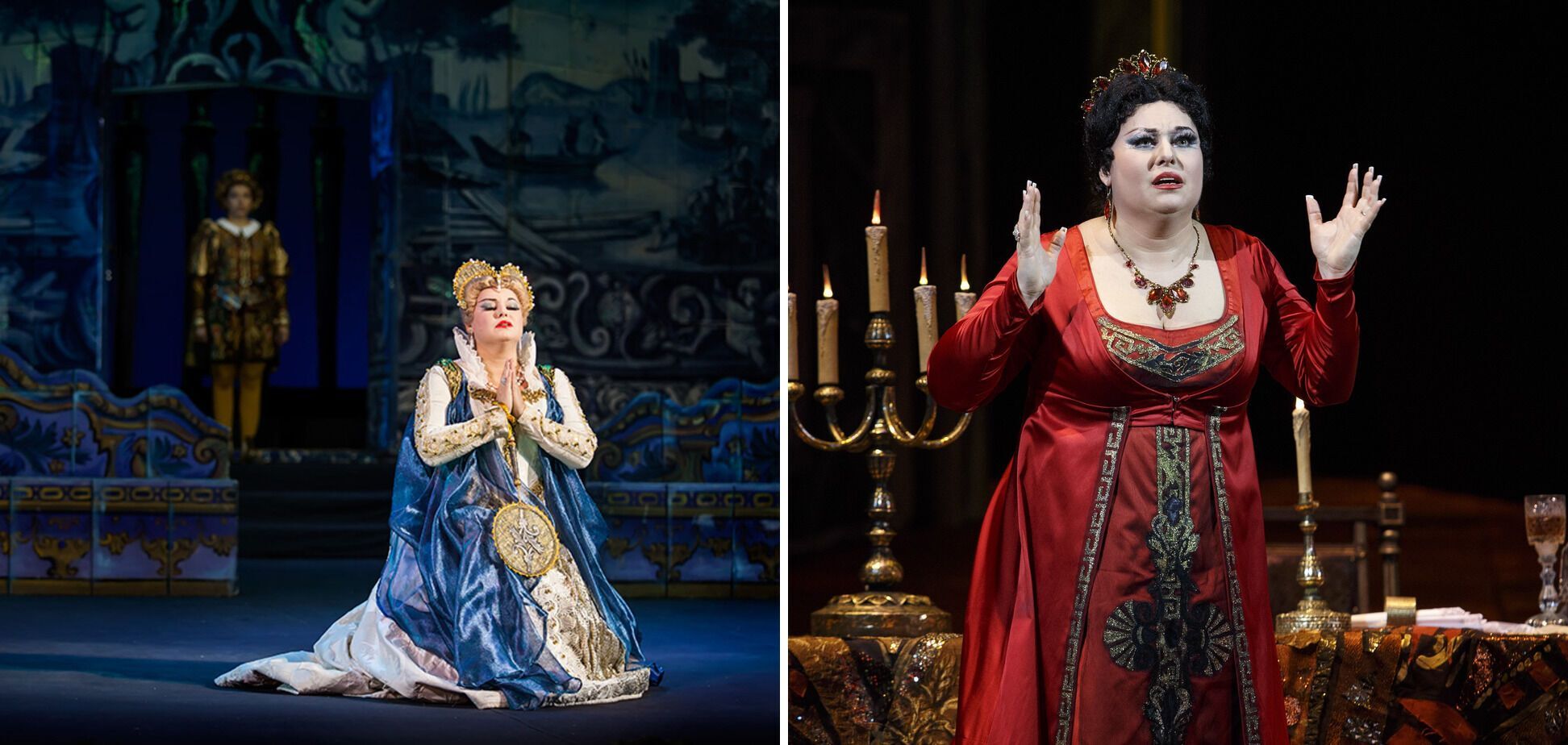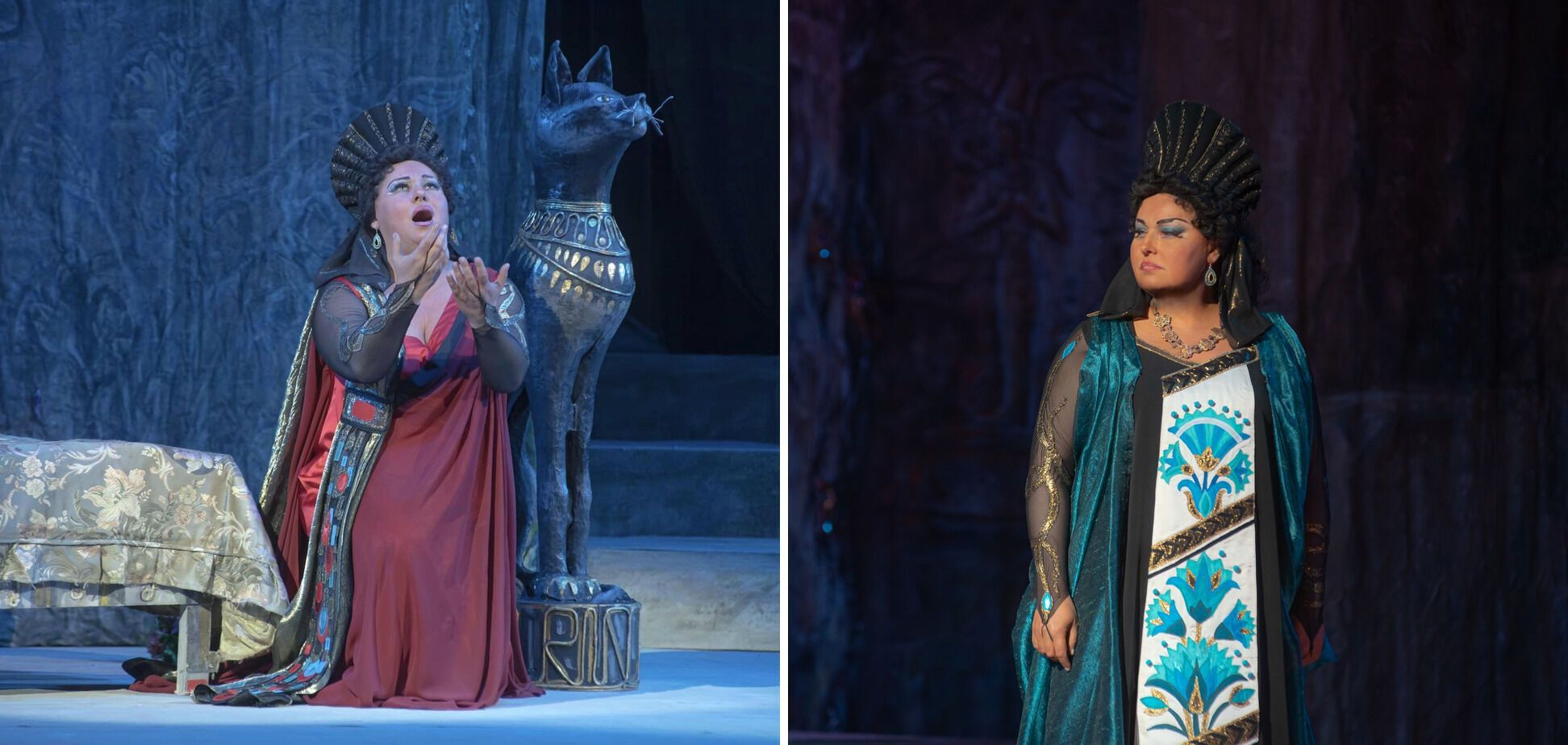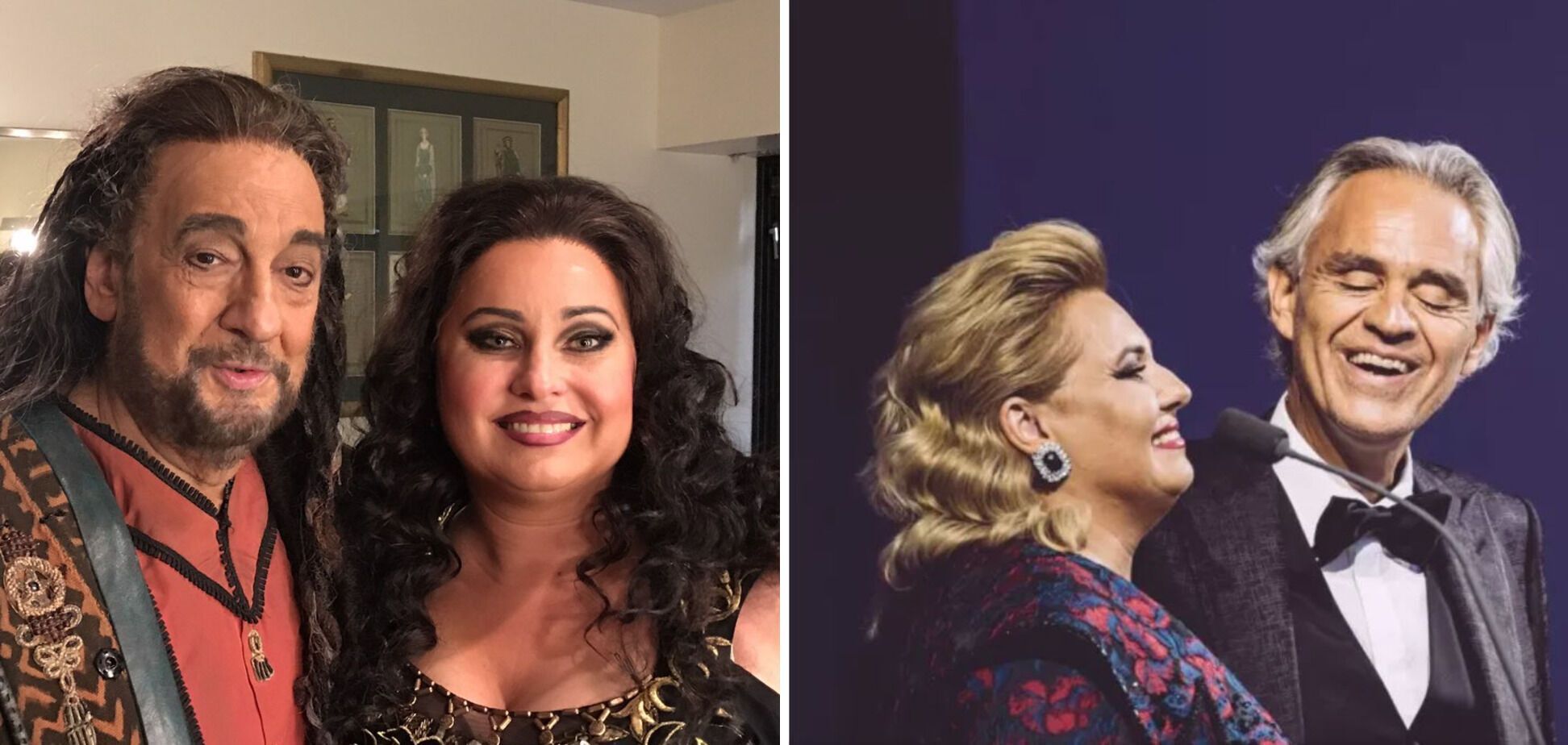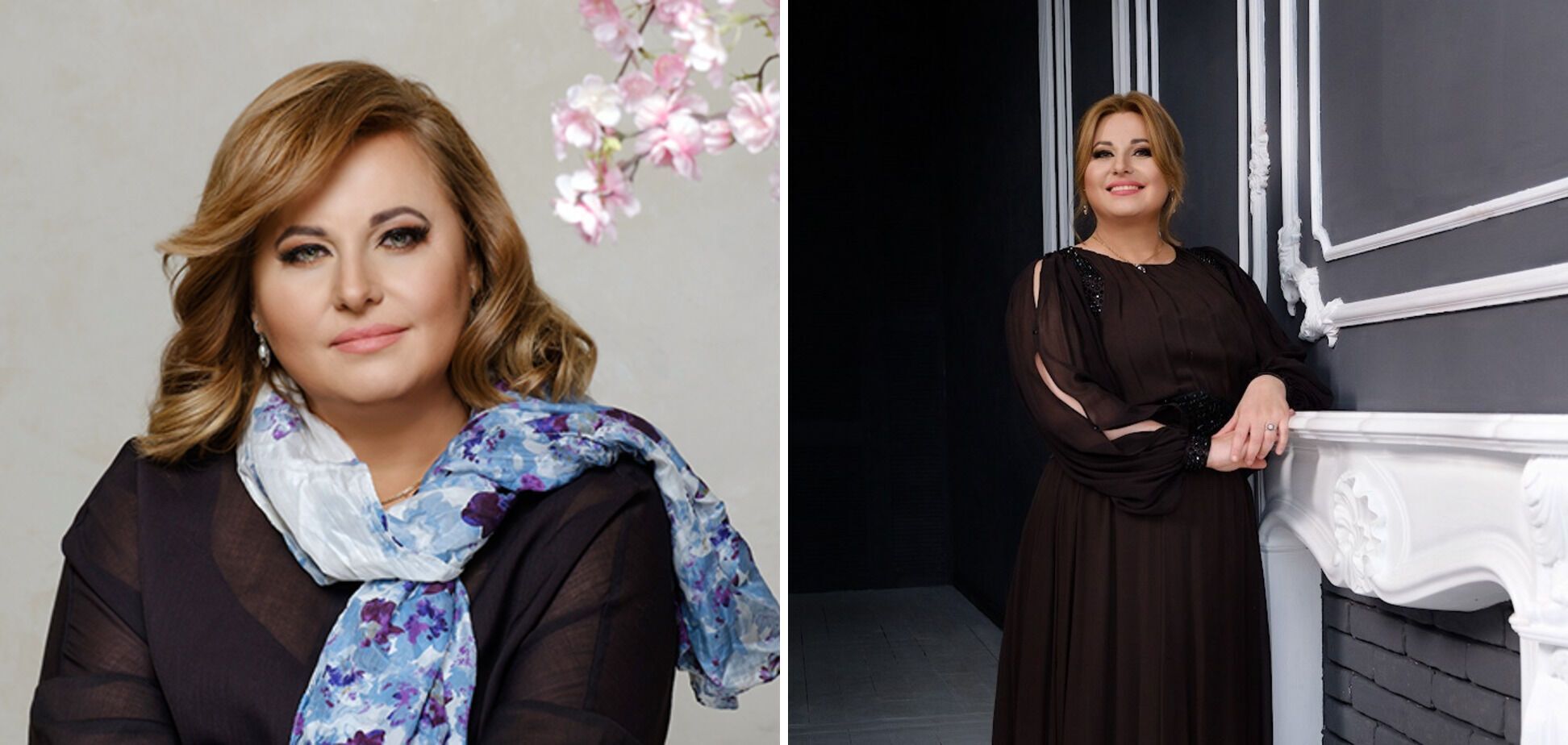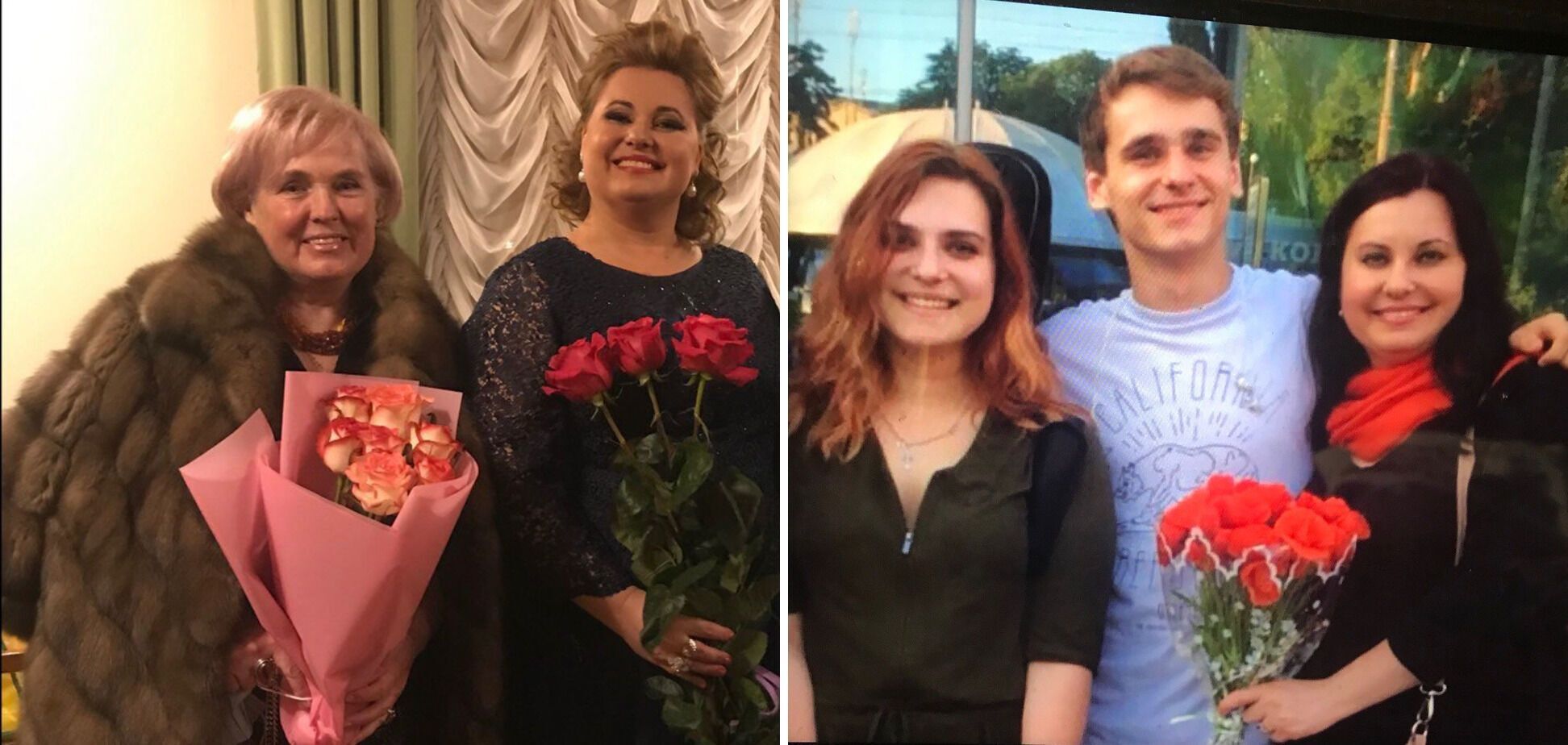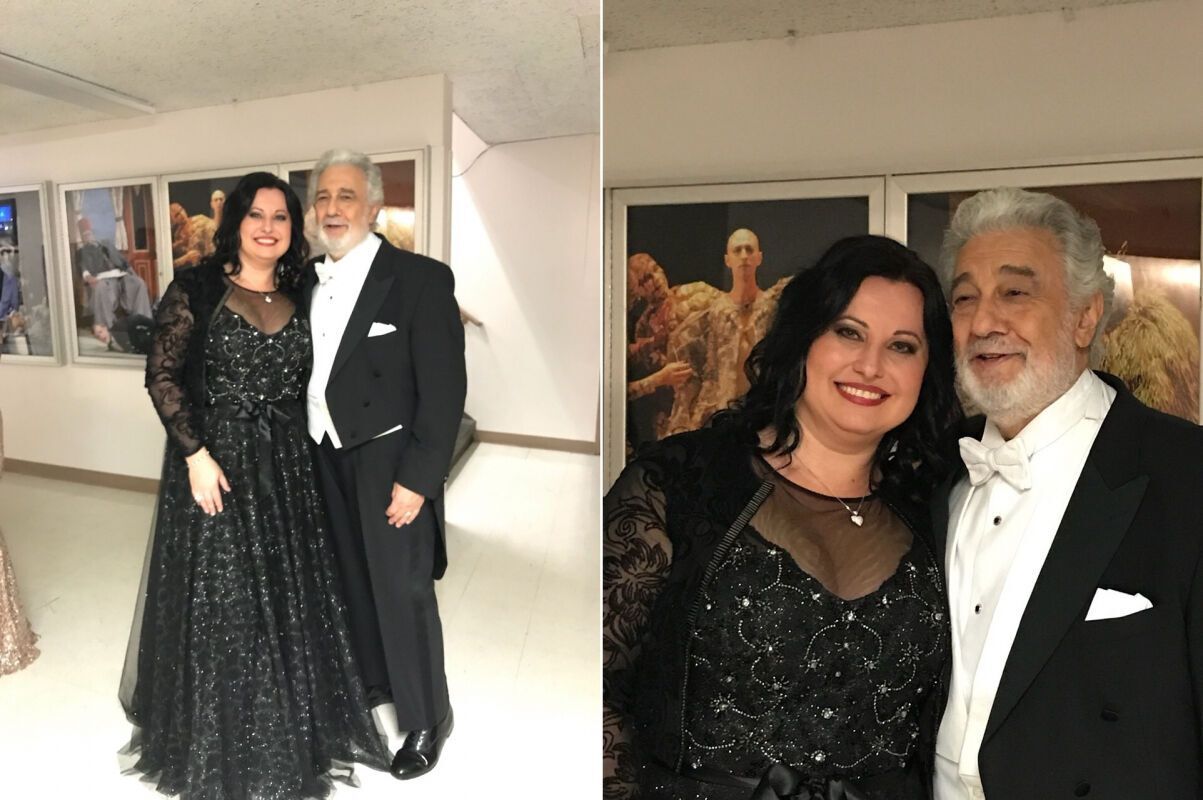Entertainment
"I have been shouting about this for many years". Opera star Lyudmyla Monastyrska talks about Russia's secret weapon, Russian music abroad, and compliments from Plácido Domingo
La Scala in Milan, the Royal Covent Garden Theater in London, and the Metropolitan Opera in New York are the stages where the voice of Lyudmyla Monastyrska, a star of the world opera scene and prima donna of the National Opera of Ukraine, can be heard. The singer rarely visits Ukraine because she has many contracts with the most prestigious theaters in the world.
In an interview with OBOZ.UA, the opera diva, who came to Kyiv, recalled how, at the beginning of the Russian aggression, she replaced Russian Anna Netrebko in the Metropolitan Opera's production, whose contract was terminated for supporting Putin's regime, and also spoke about meeting the singer after the incident and explaining why foreign theaters are in no hurry to get rid of Russian repertoire.
- The full-scale war caught you in Italy, and you later admitted that you were supported by a Russian artist, oddly enough, at the time. Who is she?
- She is a Russian woman who once went to Italy, got married there, and is making a career in Europe. She really supported me, and not only her, but also my colleagues from Moldova, Georgia, and Belarus-mostly artists living abroad.
In February 2022, I was working under contract in Naples. On 26 February, I was supposed to sing the last of the four Aida performances at the San Carlo Theater, and I had a ticket to Kyiv on 27 February. On February 24, when I found out about the invasion, my emotions were simply consuming me, I was forgetting the text, and the performance was difficult-the main role, you had to be on stage to the last note. It was something terrible.
I tried to keep in touch with my family all the time. They were all in Kyiv, except for my son Andriy, who was abroad but later returned to Ukraine. On the second or third day, when something flew near the railway station, my daughter Anya was there. They were asked to get off the evacuation train and hide in an underground passage. And she somehow made it there with her bundles and animals-three cats and a dog. At first, Anya moved to western Ukraine, then volunteers took her to Romania, and from there to Spain. In the meantime, I moved to Warsaw, and from there I went to concerts in support of Ukraine in France, Germany, and the Baltic states. And in April, I was invited to the Metropolitan Opera.
- When the theater's general director Peter Gelb called you personally and offered to replace Anna Netrebko, how did you feel?
- I have been working at the Metropolitan for more than 10 years. Peter Gelb and I know each other very well. He goes to the performances. And before major performances, he comes to the dressing room and wishes me luck - it's a custom. When he called me in Warsaw and invited me to sing instead of Anna Netrebko, I was a little confused, because usually organizational issues are resolved through the artist's agent. I honestly admit that at first I refused. I had finished singing the role of Turandot by Giacomo Puccini a long time ago, because I have many other works in my repertoire. And he said: "You have to sing it, it's our choice and our position - we're exchanging a Russian woman for a Ukrainian woman."
- Does Anna Netrebko have a job abroad now?
- I do not follow her. We saw each other only once after the incident. Last summer I sang Aida, and a tenor from Turkey was supposed to work with me. We worked on one performance, and he suddenly fell ill, so we had to look for a replacement immediately. We called Anna Netrebko's husband, the Azerbaijani tenor Yusif Eyvazov. She came to listen to him and came to my dressing room to say hello. That's how we met. There are no resentments between us - this is the decision of the theater. I will say this: she is not deprived of work now.
- After your triumphant performance of Turandot in the opera of the same name, you appeared on stage wrapped in a Ukrainian flag. I know that you had a conversation about this with Peter Gelb three hours before the performance. Was it a cunning plan: so that he wouldn't have time to come up with excuses?
- I thought about it for a long time, but decided to tell him about my idea on the day of the performance because I was really afraid of rejection. When I did, he said: "Let me think about it". And he left. He came back with a big flag, and I wrapped myself in it. Now I keep it at home. This year, I also sang at the Metropolitan Opera, but this time I sang Tosca, and I also came out with a flag. Our military were at the performance and they were introduced. The whole audience stood up and applauded, and only then did the performance begin. It was very touching.
- Lyudmyla, is it true that there is still a lot of Russian repertoire abroad?
- I'll tell you the truth: they don't bother much. They don't fundamentally distinguish between Boris Godunov, Nabucco or La Traviata. Therefore, there are enough Russian works performed there. Some countries may not invite Netrebko, but the works, whether Boris Godunov, Khovanshchina, or Eugene Onegin, do not disappear from the repertoire. In Ukraine, as you know, everything Russian has been removed from the repertoire. We have our own wonderful music - Leontovych, Skoryk, Vedel, Bortnyansky, Berezovsky, Lysenko. The very same Melody by Skoryk that I performed on the 30th anniversary of Independence at the Olimpiyskiy is a hit all over the world. Our composers are no worse - they wrote brilliant works. We have something to be proud of, we just need to promote ours.
It's no secret that Russia has been imposing its culture for decades, investing heavily in artists. This is a kind of weapon on their part. I have been shouting about this for many years. Both the Ministry of Culture and the Ministry of Foreign Affairs should get involved and support our artists. There are not so many of us, including opera artists who represent Ukraine in the world-not even ten of us. Speaking for myself, I don't feel any kind of over-support at the state level. Let's say an ambassador or cultural attaché would come to my performance. I perform in many countries. And these are isolated cases, for example, Serhiy Kyslytsia, the permanent representative of Ukraine to the UN, attends my performances in New York. And the Russians, even if it's not Netrebko, but someone of a lower rank who sings, have whole delegations with armfuls of flowers. And the audience sees it.
- Which countries, in your opinion, are most concerned about us?
- Everyone treats us quite sincerely. They always ask us how we are, where our family is, and if they are safe. But there are different situations. And this is understandable: they don't physically feel all this, they are calm, nothing flies into their house. For example, here's a moment: a year ago, I attended the Giuseppe Verdi Festival in the Italian city of Parma. After the official part, we were invited to a private club for dinner. Interestingly, each of the members of this club has a name - the name of an opera written by the composer. One is Nabucco, the other is Aida, the third is Simon Boccanegra, the fourth is Othello, and so on. Before dinner, we were talking to these Italians. And they started asking me something about politics. One of them said to me: "Why doesn't your president give up the eastern territories?" They say that then the war will calm down. And I said: "Well, wouldn't you also be against it if we came with weapons to take Sicily or Sardinia? Such talk is not for me, these are our territories. We will defend them." He remained silent.
But, you know, when I talk to foreigners abroad, I want to say that even those who did not distinguish between Ukraine and Russia before, believing that they were a single organism, have now finally realized that they are different countries with people who are very different.
- A few years ago you sang in Kyiv with Andrea Bocelli, and for a long time you worked with another famous opera singer, Plácido Domingo. Did they call you during the war, did they support you?
- Plácido called me, he was very upset, asked how I was, how my family was. He supported me, he was good. We've been working together since 2012. In addition to being a tenor, he has a career as a baritone, and at the same time, a career as a conductor. We sang together at La Scala, then at Covent Garden, and even released a CD of that performance. In Berlin, at the Staatsoper. In Barcelona, his fans almost jumped on stage, they were grabbing his legs so hard. In Los Angeles, and later in New York, at the Metropolitan Opera. He said to me: "What a beautiful smile you have. How do you say it in Ukrainian?" He learned this word "smile" and often repeated it.
- Do you have time to see anything else on tour besides the stage?
- I like to just walk around the city, see the sights, museums, if I have the chance. I adore the UK, particularly London. I visited it several times with my ex-husband and children. My son and daughter traveled with me later on. However, there is usually not much time left for all this. I get very tired because I have to give a lot of energy on stage. That's why I like silence, privacy, I don't use social media, I don't like people prying into my private life. The day after the performance, I sometimes even turn off my phone. I look for energy in myself.
I love music - very different music. These vibrations restore my inner balance and harmony. I turn on Adagietto, Gustav Mahler's Symphony No. 5, and my inner state is adjusted. I love Ella Fitzgerald, Barbra Streisand, Elvis Presley, Frank Sinatra. I respect modern music. I like Onuka, DakhaBrakha and Go A. I like music with ethnic motifs. My daughter also writes music and lyrics, she already has music videos - I really like her style, she is talented.
- You mentioned your children. In your interviews, you say that they are very independent and may not call as often as their mother would like. Why is that?
- I guess they have such characters. Indeed, they can easily not call me for a day, two, three, four. But I don't. My mother and I were very close, I can't imagine not calling her at least once a day. It's been over nine days since she passed away - she went to the other world. She was very seriously ill with cancer. She was a unique person who invested a lot in me. I am very grateful to her and my teachers.
My teacher at the conservatory, Diana Hnativna Petrynenko, has always been a model of sophistication, elegance, and femininity for me. Before the conservatory, I studied at the Glier Music School in Kyiv with Ivan Hnatovych Palyvoda, her brother. "Everything that doesn't kill us makes us stronger"-this phrase was often repeated. They toughened me up. It helps me a lot now. Recently, for example, we had a rehearsal for Aida with a guest conductor, Vasyl Koval from Dnipro. I've worked with him before - I know his hands, how he conducts the performance, but my colleagues don't. And it so happened that half of the time we were given to rehearse, we sat in a bomb shelter because there was an air raid. Of course, we managed to sing the performance, but it was a kind of test for everyone. This is our reality now, and we have to live in it.
- Lyudmyla, did you dream in your youth that your life would turn out so fantastically in terms of your career?
- It would be wrong to say that I didn't want this life. Of course, I dreamed of the best theaters in the world, iconic stages where masters sang. Those whom we now hear only in recordings. But, to be honest, I didn't think it would be so hard. All the time you need to keep yourself in a regimen, have willpower and spirit, composure, concentration. Not to mention the most important thing - my voice: I can't get sick, because there is not just one performance in the contract, sometimes ten. I am often asked if I have ever thought of emigrating. No, although there were opportunities. As Taras Shevchenko said: "One has his own truth, strength, and will in his own house." These are golden words.
Also read on OBOZ.UA an interview with director Semen Horovoy: about a fight with a Russian actor, Povaliy's betrayal, and correspondence with his ex-wife Snizhana Yegorova.
Only verified information on our Telegram channel OBOZ.UA and Viber. Do not fall for fakes!







